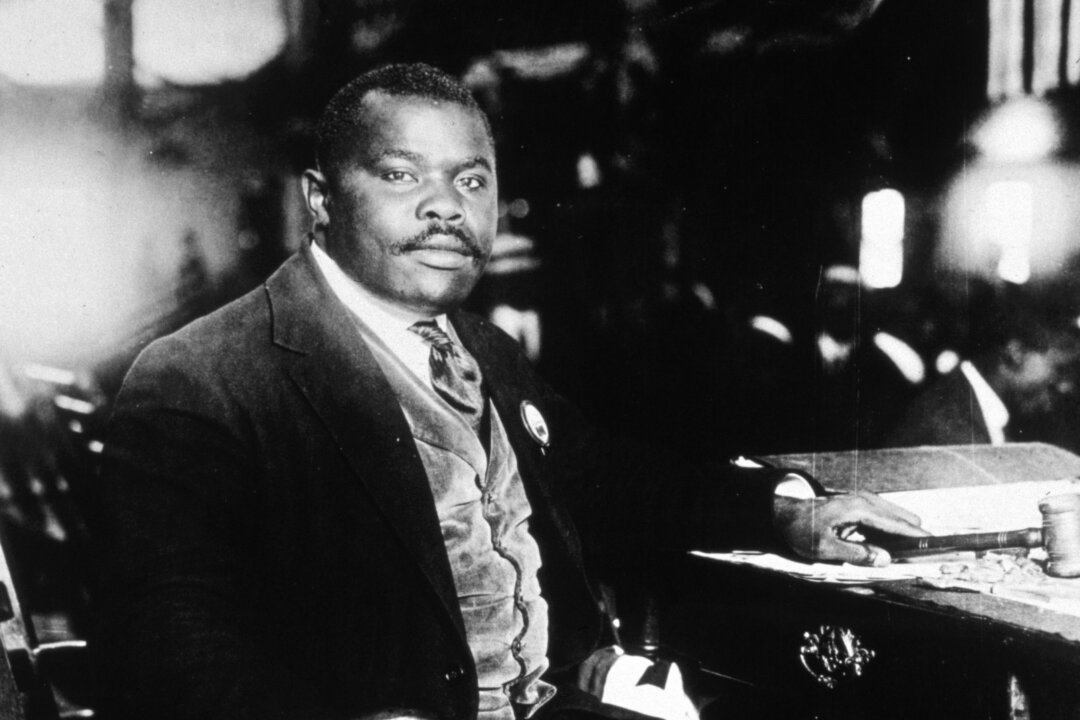‘These clemency recipients have each made significant contributions to improving their communities,’ Biden said.
President Joe Biden, on Jan. 19, posthumously pardoned Marcus Garvey, a black nationalist who was convicted of mail fraud in the 1920s and was famous for influencing Malcolm X.
“Today, I am exercising my clemency power to pardon five individuals and commute the sentences of two individuals who have demonstrated remorse, rehabilitation, and redemption,” Biden said in a statement. “These clemency recipients have each made significant contributions to improving their communities.”
The president also pardoned criminal justice reform advocate Kemba Smith Pradia, immigrant rights activist Ravi Ragbir, Democratic speaker of the Virginia House of Delegates Don Scott, and gun violence prevention advocate Darryl Chambers.
Supporters, including multiple congressional leaders, pushed Biden to pardon Garvey, arguing that his conviction was a politically motivated attempt to silence the leader for speaking about racial pride.
“He was the first man, on a mass scale and level,” to give millions of black people “a sense of dignity and destiny,” Rev. Martin Luther King Jr. said of Garvey.
Biden also commuted the sentences of Michelle West, who was serving a life sentence for an early 1990s drug conspiracy case, and Robin Peoples, who was sentenced to 111 years of prison following a conviction for robbing several northwest Indiana banks in the late 1990s.
Ragbir was convicted of wire fraud in 2001 and faced a two-year prison sentence. Smith Pradia was sentenced to 24 years behind bars following a 1994 drug offense conviction, but President Bill Clinton commuted her sentence six years later.
Scott was convicted of a 1994 drug offense before serving eight years in prison. He was elected to the Virginia legislature in 2019 and became its first black speaker last year.
“I am deeply humbled to share that I have received a Presidential Pardon from President Joe Biden for a mistake I made in 1994—one that changed the course of my life and taught me the true power of redemption,” Scott said in a statement.
Chambers was convicted of a drug offense and sentenced to 17 years in prison in 1998.
Biden set the presidential record for the most commutations and pardons issued in office, which he acknowledged in his statement on his clemency actions. On Jan. 17, the president announced the sentence commutation of nearly 2,500 people convicted of nonviolent drug offenses. In December, he also issued a broad and blanket pardon for his son Hunter, following gun and tax charges. Biden had previously said he would not pardon his son.
Biden also said he would commute the sentences of 37 of the 40 people currently on federal death row, converting their punishments to life imprisonment, days ahead of President-elect Donald Trump’s inauguration. Trump is a proponent of expanding capital punishment and presided over 13 executions during his first term in office.
Pardons relieve a person of guilt and punishment, while commutations reduce or remove the punishment but do not exonerate a person of wrongdoing.
It’s not clear if Biden will move forward with issuing preemptive pardons for people who President-elect Donald Trump has criticized or threatened with investigations or prosecutions. The topic was raised in a recent interview, but Biden had not yet made a decision. The move would be unprecedented for a president.
The Associated Press contributed to this report.

